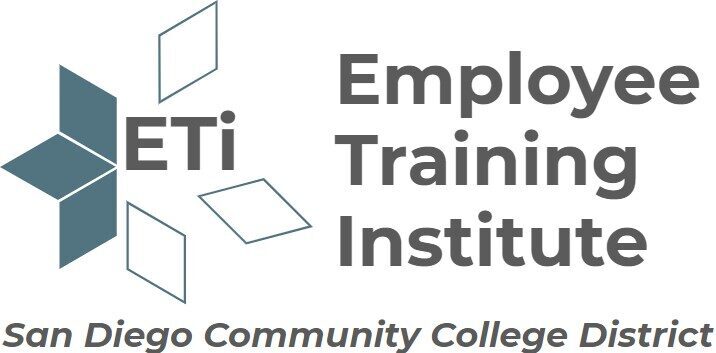Earn Bookkeeper Certification Online
Bookkeeping forms the backbone of every organization’s need to carefully account for its financial activities. It accounts for sales, purchases, and payments that flow through an entity. Bookkeepers are crucial to every organization and certified bookkeepers are the elite of their profession. This 100% online course will prepare you for certification by the American Institute of Professional Bookkeepers (AIPB).
Registration and Enrollment
This course is 100% online. Start anytime!
Course Details
What you will learn
- Eligibility requirements, code of ethics, and maintenance requirements.
- How to apply the concepts of accrual accounting to transactions that span fiscal periods and trace the effect of accrual and deferral transactions.
- Adjustment of entries.
- Identification and correction of accounting errors and reconciliation of bank accounts.
- Book and tax depreciation, including various methods of calculating depreciation for book and tax purposes.
- Basic payroll, from paying wages to depositing and reporting taxes.
- How to value inventory, record costs, make entries, and report inventory on financial statements.
- How to use basic internal controls to prevent theft, embezzlement, or check and credit card fraud by employees, customers, or vendors.
How you will benefit
- Upon completion of the course, you’ll be prepared to sit for the American Institute of Professional Bookkeepers exam.
- You may take the exam at any Prometric Test Center.
- Becoming a Certified Bookkeeper
- Eligibility Requirements
- Testing Program
- Code of Ethics
- Maintenance of Certification
- Accruals, Deferrals, and the Adjusted Trial Balance
- Why Accruals, Deferrals, and Other Adjustments are Made
- Accruing Revenues and Expenses
- Recognizing Revenues Collected in Advance
- Recognizing Expenses After a Prepayment
- Other Adjusted Entries
- Unadjusting Trial Balance Through the Adjusted Trial Balance
- Correction of Accounting Errors and the Bank Reconciliation
- When and Where Accounting Errors Occur and How They Are Discovered
- Performing the Bank Reconciliation
- Finding and Correcting Errors on the Unadjusted Trial Balance
- Correcting Current-Period Accrual and Deferral Errors
- Payroll
- How to Pay Different Types of Employees
- Federal and State Wage-Hour Law
- Paying Employees Under Federal Law
- Employment Records and Payroll Recordkeeping
- Form W-4 and Comparable State Forms
- Withholding and Depositing Federal Taxes
- Federal Employment Reporting Forms and Due Dates
- When Wages Become Taxable
- Other Reporting Rules
- Payroll Register and Journal Entries
- Depreciation
- The Difference Between Book and Tax Depreciation
- Depreciation under GAAP
- Computing and Allocation Depreciation
- Depreciation Under Federal Tax Depreciation Rules
- Tax Depreciation of Vehicles
- Inventory
- General Concepts of Accounting for Inventory
- The Perpetual Method
- The Periodic Method
- Weighted-Average and Moving-Average Methods
- First-In, First-Out (FIFO) Method
- Last-In, First-Out (LIFO) Method
- Lower of Cost or Market LCM Rule
- Internal Controls and Fraud Depreciation
- How to Prevent or Spot Theft of Inventory and Other Non-cash Assets by Employees
- Preventing Employee Theft, Embezzlement, or Fraud by Hiring the Right Personnel
- Insuring the Company Against Theft
- How to Prevent or Spot Customer Check Fraud
- Signs that May Indicate Payroll Fraud
- How to Prevent or Spot Customer Credit Card Fraud
- Recommended Rules for Company Credit Cards
- Preventing Vendors From Cheating the Company
This course is designed for experienced bookkeepers with at least two years of work experience in bookkeeping or accounting.
Hardware Requirements:
- This course can be taken on either a PC or Mac.
Software Requirements:
- PC: Windows 8 or later.
- Mac: macOS 10.6 or later.
- Browser: The latest version of Google Chrome or Mozilla Firefox are preferred. Microsoft Edge and Safari are also compatible.
- Microsoft Word (not included in enrollment).
- Microsoft Excel (not included in enrollment).
- Adobe Acrobat Reader.
- Software must be installed and fully operational before the course begins.
Other:
- Email capabilities and access to a personal email account.
Instructional Material Requirements:
The instructional materials required for this course are included in enrollment. The AIPB provides the six workbooks that are required for this course:
- Mastering Adjusting Entries
- Mastering Correction of Accounting Errors
- Mastering Payroll
- Mastering Depreciation
- Mastering Inventory
- Mastering Internal Controls and Fraud Prevention
In addition to the six workbooks listed above, you will also receive:
- Two exam vouchers that cover the full cost of part one and part two of the Certified Bookkeeper exam
Books/Materials/Exam Fees are non-refundable upon registration.
Note: Due to the high cost of these items, books will not be shipped until 10-days after the student’s start date. Students may request an earlier shipment by contacting their Student Advisor but will be required to acknowledge the fees involved are non-refundable.
Wade Lindenberger
Wade Lindenberger is a CPA with over 20 years of financial accounting and management experience in public accounting and private industry. He is currently Director of Finance and Administration for New Children’s Museum. Before his current position, he worked as the National Finance and Accounting Service Line Leader for Premier Alliance Group, a national professional services firm. Wade was also Director of the Finance and Accounting service line for the San Diego office of a global, publicly held professional services firm. Before becoming a consultant, Wade was Divisional Controller for one of the leading health and fitness club chains in the world. He has also been Internal Audit Manager and Divisional Controller for a division of a Fortune 500 global energy project management company. He began his career with Coopers & Lybrand, predecessor to PricewaterhouseCoopers, one of the “Big Four” CPA firms. He has previously served as an instructor for courses at Coopers & Lybrand and UC San Diego and is currently an adjunct professor at the University of San Diego School of Business. He is a member of the American Institute of Certified Bookkeepers’ Advisory Board.
Helene K. Liatsos
Helene K. Liatsos is business advisor and QuickBooks Certified Advisor with more than 25 years of experience. She consults for a range of companies, from travel agencies to startups. Her company Home Office Management Experts was awarded the 2004 Home-Based Business of the Year by the U.S. Small Business Administration. Helene holds a Bachelor of Arts from Fairleigh Dickinson University.
$1,995.00 (USD) per person.
This course is 100% online.
| Course Hours | Duration | Start Dates |
|---|---|---|
| 140 Course Hrs | 6 Months | Start anytime! |
Job Outlook
According to PayScale.com, bookkeepers earn on average $17.37 per hour. Top bookkeepers’ earnings exceed $56,900.
CareerBuilder.com cites bookkeeping skills as highly transferable to financial supervisory, analysis, or managerial roles. The site calls bookkeeper an “ideal choice” for those who are motivated to keep organizations on track with regard to their finances.
Technology is highly relevant to the bookkeeper’s role. Mastery of bookkeeping software applications is the key to matching bookkeeping skills with expanding requirements for analysis, visual data presentation, and reporting that provides value-added to the traditional bookkeeper’s duties.
FAQs
WHAT DOES THE BOOKKEEPER ROLE INVOLVE?
Bookkeepers serve on the front lines of a person, company or organization’s financial health. Strong bookkeepers set up, deploy and manage systems that record the flow of funds into and out of an entity’s coffers. Using reporting tools and systems, bookkeepers help individuals and operational managers stay aware of and improve an entity’s financial status and performance.
HASN’T TECHNOLOGY REPLACED BOOKKEEPERS?
Technology has had a huge impact on the bookkeeping field. However, the bookkeeper’s underlying organizational skills and precise attention to detail are as valuable as ever to their employers and clients. Programs like QuickBooks® or Microsoft Excel® have widely replaced the manual entry functions of traditional bookkeeping. However, the organization, reporting, and use of financial data still rely heavily on human input and processing.
IS CERTIFICATION IMPORTANT FOR BOOKKEEPERS?
Certification in any profession signals to employers, colleagues, and clients that a professional is committed to the highest standards of excellence and accountability. Certified bookkeepers meet the AIPB’s highest standards for financial accounting, business practices and ethical conduct.
HOW DO I BECOME A CERTIFIED BOOKKEEPER?
To earn your AIPB Certified Bookkeeper designation, you must pass the AIPB certification exam and be able to submit proof of at least two years of full-time or 3,000 hours of part-time experience.
IS BOOKKEEPING A GOOD OPTION FOR REMOTE WORK?
Because bookkeeping relies heavily on technology and can be done almost entirely using digital tools, it is considered an excellent prospect for remote, contract, and work-at-home career opportunities.
Ad“My facilitator was understanding and professional. The online course allowed me to work at my own convenience. The support I received was timely and helped me to navigate through the course,”d Quote
B.P., Cal Polytechnic State University

